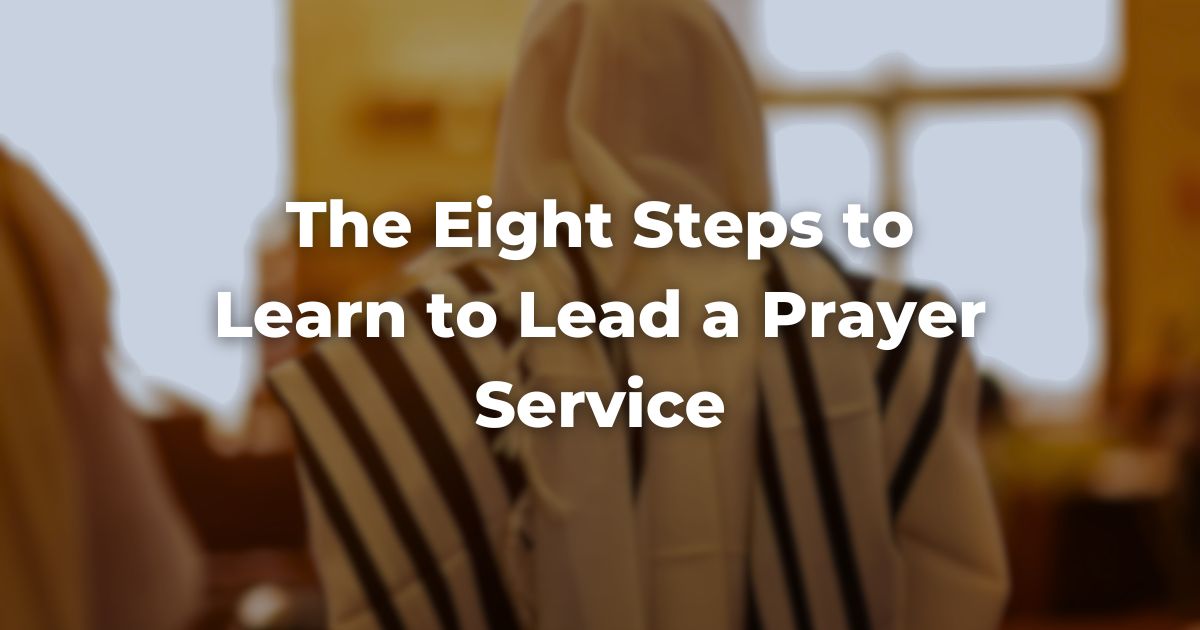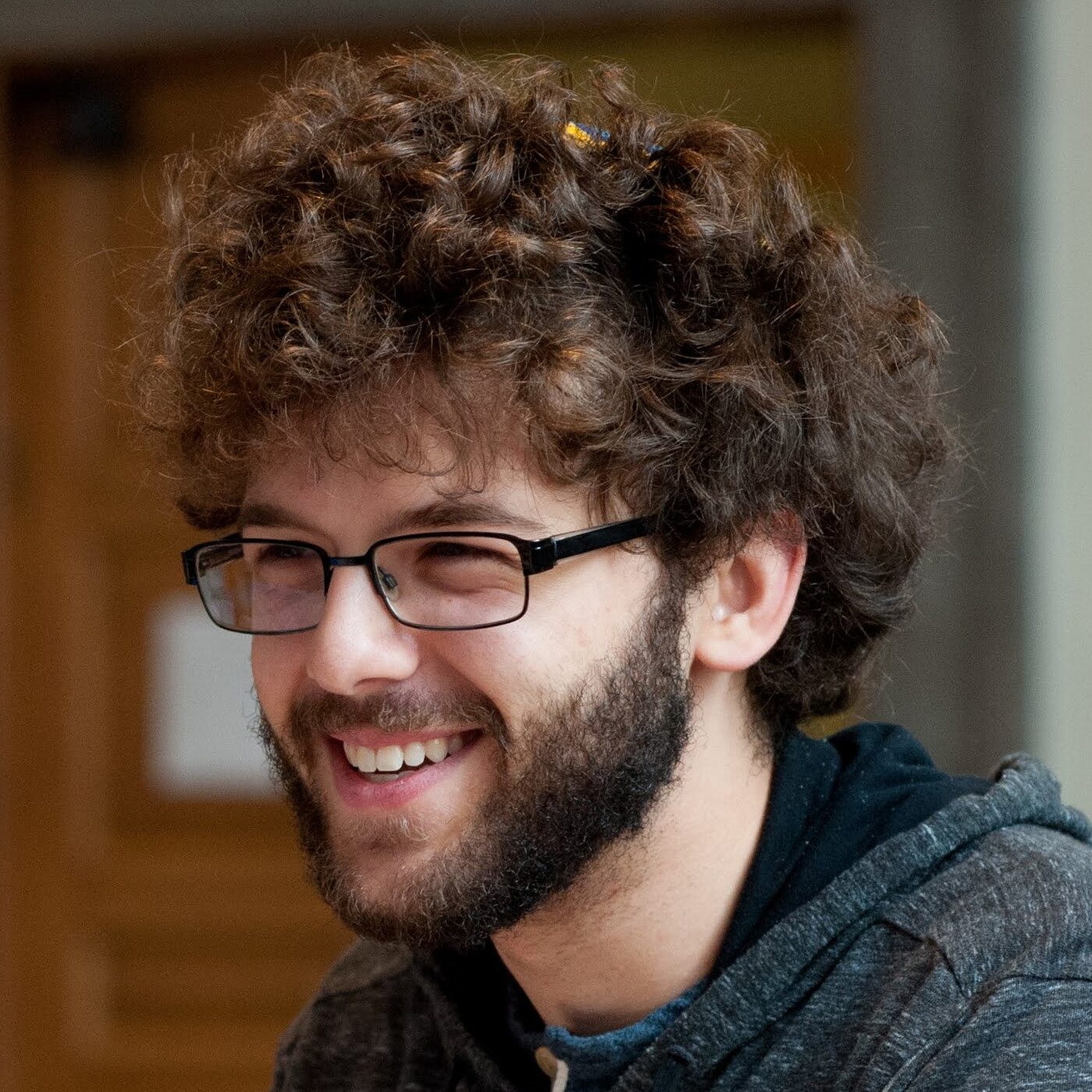Leading a community in worship (sometimes called davening) is an enormous honor and responsibility. Judaism is fairly democratic in who gets to lead. It requires no special certification and, in the Conservative/Masorti world, has no gendered limitations.
If you’ve been itching to learn how, here’s a guide to get you started.
Step One: Be in a Community
The first step is to find a community or leader whose prayer services are accessible to you, and then be there. Become part of the minyan. Go regularly. Learn the faces. Get really comfortable and familiar with the structure, layout, sounds, and tunes of davening.
A friend of mine calls this process “getting your shul ears.”
A person with shul ears knows when to stand and sit, which parts of the service are usually done aloud or quietly, the pace and rhythm of the service, the page numbers. If you want to lead a service, its tiny ins and outs need to be familiar to you so you can have confidence in what you are doing, what is expected of you, and what preparations you need to make before you can lead. You don’t want any surprises if you can help it.
Ask your cantor or rabbi if you need help here. If you are lucky enough to have a cantor, you should reach out to them! It’s their profession. They’ll love you for asking.
Step Two: Find a role model
Search for a person or community whose davening you like and pay close attention to what they do. Before, you were looking to learn the basic details of a standard service, now is the time to learn some of the individual artistry:
- How does it feel to pray with this person at the helm?
- What do I like about this davening?
Think about the choices they make:
- When are they faster or slower?
- What tunes do they use?
- How do they get people to participate?
- How do they hold the room?
- How do they convey the emotion of the siddur?
Also, feel free to ask! There aren’t many people who would be upset to hear that their davening is appreciated! Maybe they can mentor you (in which case, you can ask them directly!)
If you can’t find a community or person whose davening you like, take some time and think about what specifically doesn’t work for you, which can be just as helpful for your own style. Where does this davening fail for you? Does it drag, or does it not leave you enough time to pray? Are the tunes meaningful and resonant, or do they fail to reach you? Does the service move you? Does it alienate you? Above all else: how does it feel to be here?
If all else fails, many synagogues record their services and post them on YouTube. You will miss out on a lot of the subtleties of davening and have a harder time finding a community you can lead in, so try not to do this. Using videos to learn a specific thing or to listen to a service again and again is great, but you’re unlikely to get shul ears from them. That said, it’s better than nothing, so watch and take notes.
Step Three: Take stock of what you know
By this point, you’ve learned a lot! Maybe you have a good handle on the Shema or the first three blessings of the Amidah. If you’ve really put in the time to get those shul ears, you’ll likely know a lot more than you think.
Take the time to open your siddur and start thinking about what you might want to lead first. What service feels manageable to learn in, say, two months? Weekday Mincha is very short, but depending on where you live, there might not be a community that does it regularly. Most likely, your community has a Shabbat service, so maybe look at something from Friday night. Friday Mincha, Kabbalat Shabbat, and Ma’ariv are all great to start with.
Look over your desired service from beginning to end before moving forward. Make sure you know what you’re signing up for. Then, choose.
Step Four: Get something on the calendar
Now that you’re part of a community, you’ve earned your shul ears, and you know what you’d like to learn, it’s time to start making plans.
Ask your Rabbi who it is that makes these decisions for your community and tell them what you’re doing. Ask them for a slot two months in advance. Two months is long enough in advance that you can learn almost any service, but it’s close enough that you won’t procrastinate. You do not need to be completely ready before you put your name on the calendar! Having a deadline is a great incentive to put the work in without letting it drag. If you want additional support and impetus, invite someone to be there. Get a date.
Step Five: Drill the Hebrew
Once you’ve identified what needs practice, spend time drilling the Hebrew. The music of services will come later and be much easier if you’re not tripping over the words. Practice a line at a time, or a phrase at a time, and pay close attention to the meaning of the words. Check the English translation in your siddur. Pay attention to the commas, the periods, the line breaks. All of these will guide you as you start to add in the music of davening.
Step Six: Nusach
Nusach is the musical environment of davening. It can be simple and straightforward, like weekday services, or it can be grand and complex like on the High Holidays. If you have your shul ears, you may already be thinking about nusach without knowing what it is. Start with something simple. A rule of thumb in nusach is that the more frequent the service, the simpler the nusach.
Find a recording of the service you want to learn. They are all over YouTube for free, and many synagogues have recordings posted on their websites. Here is a non-exhaustive list of places to find them:
- The Jewish Theological Seminary has a free archive of recordings in different voices
- For $9 per month, The Cantor’s Assembly has a series of recorded lectures. I haven’t personally used this one, but I have heard it’s worth it
- Hadar has a great free archive as well, with lots of tunes in addition to nusach
- Virtual Cantor has straightforward recordings of most services
- Of deep personal significance to me are the recordings of my Rabbi and teacher, Rabbi Neil Blumofe
Listen to those recordings again and again. Sing with them. Get the service stuck in your head. Hum it when you’re bored. Practice it daily.
Eventually, phase out the recordings and practice on your own. If you’ve been going to synagogue regularly, already drilled the Hebrew, and picked out a service which is manageable, this step might go faster than you thought.
Step Seven: Just do it
The first time you lead will likely be scary. Don’t try to do everything all at once. This is not the time to achieve high art. Your goal here is to just lead the service competently. It will be your first time only once. Just do it.
Step Eight: You did it!
Mazel Tov! You are a service leader, a davener. Take a deep breath. Some time ago you were just reading on the internet how to learn this skill and now look at you! Make an occasion out of it, maybe donate to a charity or to the synagogue where you learned, maybe bring some snacks to share with your shul friends. Be proud of what you’ve achieved. You are a part of the small, vital group of Jews who help their communities to pray.
Now that your heart rate has settled down, it’s time for the post-game analysis: How did it go? What went well, what needs more work?
Don’t be hard on yourself, but be sure to be realistic. No one is perfect the first time. You’ve established you can lead the service, which is a huge lift. For the next time, you can work on the artistry and fine-tuning. Go back and drill the words you tripped over. Think of your favorite melodies, or bits of the siddur which speak to you and you want to highlight, or goals that you have around timing and feeling. Now that you have this service in your pocket, you have the freedom to make it your own.
Bonus Step: Sign up again!
Author
-

Alex Friedman (he/him) is a Rabbinical student at the Jewish Theological Seminary in his final year of study. He was a fellow in the first cohort of the Exploring Judaism's Writer's Fellowship. A native Texan, Alex grew up in the Conservative movement and has worked with and for Conservative communities across the US and in Israel. He holds a BA in Near Eastern and Judaic Studies (NEJS) and Politics from Brandeis University. Alex enjoys cooking, podcasts, Jewish music and niggunim, queer TorahRefers to the first five books of the Hebrew Bible, the Tanakh, also called the Five Books of Moses, Pentateuch or the Hebrew equivalent, Humash. This is also called the Written Torah. The term may also refer to teachings that expound on Jewish tradition. Read more, and collecting owl tchotchkes.
View all posts






